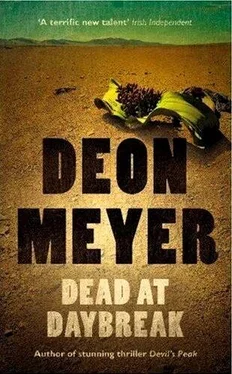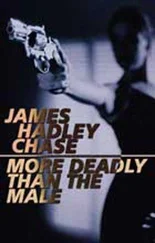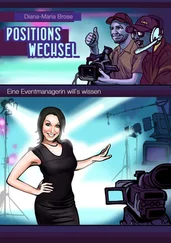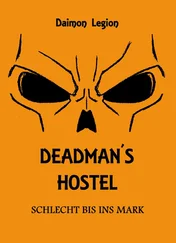Voice from inside. “What do you want?”
“His ammunition is finished,” said Van Heerden.
“Is that a wish or a fact?”
“Do you want to bet?”
“One of your mother’s pictures that’s hanging on your wall.”
“What do I get if I’m right?”
“The Heckler and Koch.”
“Forget it.”
From inside: “What are you looking for?”
“I see you’re also hopeless with women. Your mother’s painting against a guaranteed formula for getting the attorney into bed.”
“That Russian training was thorough.”
“Come in with your hands up. Or we’ll blast you,” the voice yelled from inside the flat. From somewhere in the streets outside came the sound of the first sirens.
“He’s bluffing about the ‘us,’ ” said Tiny.
“You want to bet?”
“No.”
“There’s something else I have to tell you,” said Van Heerden.
Tiny sighed. “Fire away.”
“I was a policeman for a long time, but I never had the opportunity to do the kick-open-the-door-and-rush-in-shooting bit. And to do it for the first time scares me more than you can ever imagine.”
Voice inside: “We’re counting to ten.”
“All I need. A cowardly whitey.”
“We going in?”
“Yes,” said Tiny. “You first.”
“Fucking cowardly Xhosa,” said Zatopek van Heerden, and then he moved, rose from the crouch, shoulder first, and burst through the door.
∨ Dead at Daybreak ∧
52
He first used a red ribbon because it was there, in the prostitute’s hair: he picked her up in his Volkswagen Kombi in Sea Point and drove up to Signal Hill, where he strangled her after oral sex. He dumped her body, spread-eagled her arms and legs, put her in the middle of the road, his “signature,” his statement that she meant nothing to him, that he despised her and her kind. And when the media focused on the red ribbon, he bought a roll of it at Hymie Sachs in Goodwood and either strangled or decorated the next sixteen of his victims with a meter of red ribbon. He broke the ribbon-strangulation habit with the thirteenth and used his hands, but the red strip was still tied around the necks of his spread-eagled victims. His mocking message to Nagel and me. His mark of superiority. His relishing of the media spotlight.
He sent a letter to the Cape Times after the third murder, when they had described him as the Red Ribbon Murderer. “I AM NOT A MURDERER. I AM AN EXECUTIONUR,” he had written, bad spelling and all, in block letters. And then he became the Executioner, the criminal whom I hated more than anyone else in my whole career because he kept Nagel in the Cape and me away from Nonnie.
The hunt placed enormous tension on my partnership with Nagel. The pressure, because of media interest, was unbearable toward the end, when he so unexpectedly uttered his warning about his wife.
In all the previous cases that we had investigated, the competition between us had been amiable, always on the safe side of the border drawn by mutual respect. But it seemed as if Nagel used Red Ribbon as a measure of who deserved Nonnie. Like those head-butting rams that have to prove their genetic superiority in order to mate with the ewe, he tackled me in my one area of speciality, the serial killer, and questioned and refuted my every profile, every possible statement, every conceivable judgment, forecast, and trapping method.
With the first victim I had already forecast that he would kill again: all the signs were there.
“Bullshit,” said Nagel.
But with the second it was he who shared his “theory” with the media: “We have a serial killer here. Ever since the first murder I have had no doubt about it.”
As the death toll grew, as the media hysteria increased, as the pressure from the commanding officer and top structure became stronger, the friendship and professional partnership between Nagel and me crumbled. His criticism of me and his passing remarks became personal, disparaging, cutting. The one big difference between us, the fact that I could never get used to the heartlessness and the violence of murder scenes, the fact that I was constantly shocked and upset, evoked no sympathy, merely scorn, during the months when I vomited again or, with a pale face and shaking hands, tried not to. He deliberately emphasized his own icy approach, the detachment he had built up over the years. But now the gloves were off. “You don’t have the heart of a policeman,” he said, with so much disapproval that it cut me like a knife. It was only my conscience, my guilty, guilty conscience, and the quiet knowledge that Nonnie was mine, not his, that prevented an all-or-nothing confrontation, that allowed me to give way, even when I knew with absolute certainty that he was wrong about the methods needed to stop Red Ribbon.
I’ll always believe that we could have caught the murderer sooner if it hadn’t been for the dispute between us. The opportunities slid past one by one while Nagel fought for dominance.
And eventually he solved the case with forensic evidence from tire tracks and the fiber of the camper’s carpets. “Not your psychological shit,” he’d said on that last evening when we were on our way to make the arrest.
Lord, and that last evening had started so well.
∨ Dead at Daybreak ∧
53
Meet me at Café Paradiso on Kloof Street in ten minutes,” the man on the telephone said to Hope.
“How will I know you?”
“I’m wearing a brown leather jacket.” And then the line went dead. She replaced the receiver. “Thank you so much,” she said to the Taiwanese woman, and ran out the door.
Nougat O’Grady swore softly and ran after her.
“Have you heard of fat guys who are incredibly nimble on their feet?”
“Yes,” she said.
“Well, I’m not one of them.”
♦
“Who sent you?” Bester Brits had asked Gary, and the answer was “Oh-ri-un,” and he didn’t want to hear it because his head was filled with the past and then he began to think, think, think, and here he was, with the telephone book, his finger moving down the list: Orion Motors, Orion Printers, Orion Telecom Corporation, Orion Solutions, Orion Wool & Crafts, all printed in heavy black letters except for Orion Printers and Orion Solutions.
Oh-ri-unSh…
All obvious business enterprises except Orion Solutions.
Oh-ri-unSh…
Just the name of the firm and the number, 462-555, no address, no fax number, nothing. They had kept the name. Were they that arrogant, that challenging?
Bester Brits dialed the number of Orion Solutions.
“Leave your name and number. We’ll call back.”
Not exactly client-friendly.
He dialed another number.
“Sergeant Pienaar.”
“Pine, it’s Bester Brits.”
“Colonel!”
“I’m looking for an address for a telephone number. I don’t want to go through the channels.”
“Give me five minutes, Colonel.”
He leaned back. Rank had its advantages.
♦
He was wrong about the ammunition: the R4 stuttered out as he rolled into the flat. He kept on rolling, the bullets stitching a row behind him, and he shot wildly, one, two, three shots with the Z88, hopelessly wide of the mark, fear injecting adrenaline, chunks of plaster and wood, dust and splinters, earsplitting noise. Tiny Mpayipheli’s Rossi .357 Magnum thundered once and then everything was quiet and he rolled to a halt behind the cheap sitting-room chair, his heart beating, blood hammering through his body, his hands shaking.
“He lied about the ‘us,’ ” said Tiny.
Van Heerden got up, shook the dust from his clothes, saw the man, the top of his head shot away by the heavy-caliber pistol. The sirens were close now, loud and clear. “We don’t have time,” he said. “We must be out of here before the police arrive.”
Читать дальше
